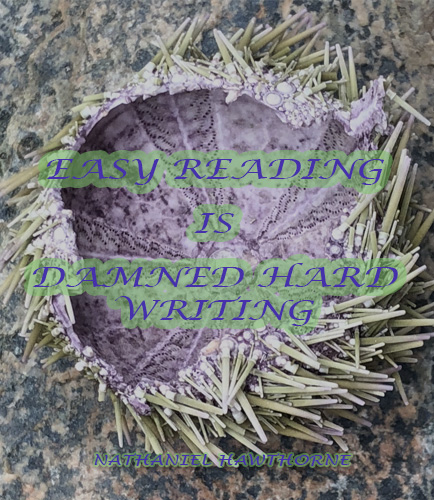The Writing Life
Good writing is difficult. Daniel Hawthorne says it best, “Easy reading is damn hard writing.”
Writing is how I give form to my thoughts. Vocal expression is more difficult. Sometimes what was meant is not what was heard. In writing, the creative process takes over, extracting from the mind the words that will come together as phrases, sentences, paragraphs, chapters, and the story.

Writing means that a thought can be refined almost endlessly. A first draft can turn into as many more drafts as necessary until style, syntax, grammar, and vocabulary at last say what was meant. Until writing becomes easy reading, too. It requires both focus and relaxation. It's almost like trying to remember a dream. The more you chase it, the faster it returns to your unconscious mind.
In the end, writing is a very demanding need.
